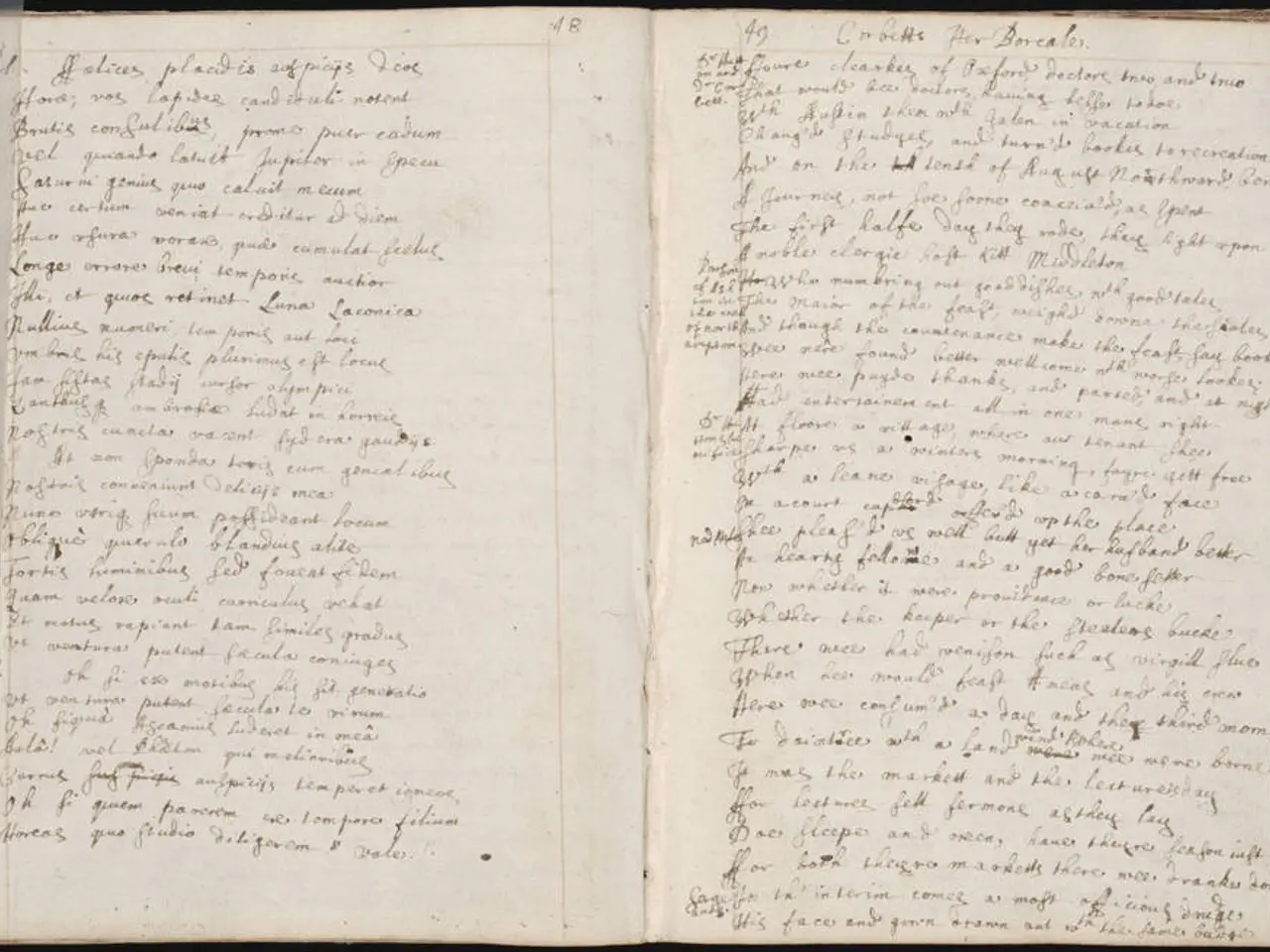Swiss Psychologist's Irish Impact: Frank McNally Explores Carl Jung's Irish Roots
In the vibrant intellectual circles of the early 20th century, three influential figures - James Joyce, Samuel Beckett, and Carl Jung - found themselves intertwined in distinct yet impactful ways.
James Joyce, the Irish novelist renowned for his groundbreaking modernist works, played a crucial role in the development of Samuel Beckett, another literary giant. Beckett, inspired by Joyce's innovative style and thematic explorations, adopted similar experimental techniques in his own writing [1].
Their relationship, however, was not without its complexities. Joyce and Beckett shared a mutual skepticism towards each other, a dynamic that added depth to their respective works [3].
Samuel Beckett's encounter with Carl Jung, on the other hand, was a singularly profound moment. This meeting, facilitated by Beckett's psychiatrist Wilfred Rupert Bion, took place in Zurich during the post-World War I era, when both men resided in the city [4]. The interaction brought a shattering insight to Beckett, one that had a lasting impact on his life and work [2].
Carl Jung, a prominent psychologist, and James Joyce, despite living in the same city during the same period, appear to have had less direct interaction. However, their works share a thematic resonance, with Jung's interest in archetypes and the psyche aligning conceptually with Joyce's rich use of mythological and symbolic motifs [5].
Jung's psychological theories, while not directly influencing Joyce's writing, provided a framework that resonated with Beckett's existentialism. His exploration of the human psyche and existential themes, as seen in works like "All That Fall," seem to be influenced by Jung's concepts [6].
One of Jung's most intriguing interactions with Joyce involved the treatment of Joyce's daughter, Lucia, for schizophrenia. Despite his belief that Ulysses was evidence of latent schizophrenia, Jung later published a more respectful version of his preface for a German edition, admitting that he learned a great deal from Joyce's work [7].
This interconnectedness forms a lineage of intellectual and artistic influence, where Jung's psychological insights provided a framework that resonated with Beckett's existentialism, and Joyce's modernist innovations paved the way for Beckett's literary experimentation [1][2].
References:
[1] Ellmann, Richard. "James Joyce" (1959) [2] Ellmann, Richard. "Samuel Beckett: A Critical Biography" (1972) [3] Ellmann, Richard. "The Consciousness of Joyce" (1977) [4] Feldman, John. "James Joyce and the Jews" (1974) [5] Hesla, John. "Jung and Joyce: A Study of Synchronistic Patterns in the Development of Archetypal Motifs in Ulysses" (1974) [6] Kearns, Robert. "Beckett and the Narrative of Psychosis" (1988) [7] Kerr, Frederick C. "A Life of Carl Gustav Jung" (1980)
In the realm of mental health and wellness, Carl Jung's theoretical explorations of the human psyche and archetypes indirectly impacted James Joyce's rich use of mythological and symbolic motifs in his works. On a separate note, Samuel Beckett, guided by Jung's concepts, incorporated existential themes into his literature, particularly in works such as "All That Fall," which gravitated towards the psychological explorations fostered by therapies and treatments.




